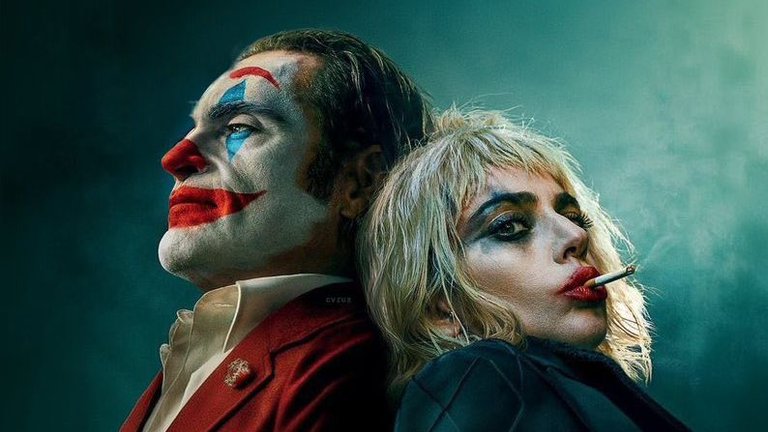
La mayor decepción en taquilla del 2024
Without a doubt this was one of the most anticipated films of the year, not only because of the success of its predecessor, but also because of the incorporation of Lady Gaga to the cast and because of all the commotion that was created when it was said that the film would be a musical. There were those who condemned the choice at the time, but many others gave Todd Phillips the benefit of the doubt, probably remembering that they had once disbelieved in him and with Joker he had shown them how wrong they were. However, was it possible to repeat the feat?
Sin duda esta era una de las películas más esperadas del año, no sólo por el éxito de su predecesora, sino también por la incorporación de Lady Gaga al elenco y por todo el revuelo que se armó cuando se supo que la película sería un musical. Hubo quienes condenaron la elección en ese momento, pero muchos otros le otorgaron el beneficio de la duda a Todd Phillips, probablemente recordando que ya una vez no habían creído en él y con Joker les había demostrado lo equivocados que estaban. Sin embargo, ¿era posible repetir la hazaña?
Joker: Folie à Deux begins shortly after the end of Joker. Imprisoned in Arkham, Arthur Fleck (Joaquin Phoenix) awaits medical evaluations that will indicate whether or not, in his mentally ill condition, he can go to trial for the murders committed in the previous film, especially that of Murray Franklin, live in a television show. Like any defendant or criminal who is going to be tried, Arthur has a defense lawyer who, in this case, seems to be worried about Arthur and her theory is that Joker is a personality separate from the disturbed and beaten man that he is. The abuse in childhood and all the things that have happened to him in his life were what caused this explosion of a second, more violent and determined identity. That is what the lawyer says and that is what she intends to present in her defense, that Arthur can still be saved, that a sick man should not be sentenced to death when that illness was caused by the same system that now tries to judge him. It seems like a weak plea, but taking into account certain antecedents in the American justice system, Arthur's living conditions and the calm and impassive character that he's shown since he has been imprisoned, perhaps it's the only possibility that Fleck has of becoming a free man again, but does he believe that claim? Does he truly feel that Joker is a different identity from his? And if not, will he allow his lawyer to expose him that way at trial, making him look like a mentally ill person and nothing more? That is the first important question that should be reviewed.
Joker: Folie à Deux inicia poco después del final de Joker. Encarcelado en Arkham, Arthur Fleck (Joaquin Phoenix) espera las evaluaciones médicas que indiquen si, en su condición de enfermo mental, puede o no ir a juicio por los asesinatos cometidos en la película anterior, especialmente el de Murray Franklin, en vivo en un programa de televisión. Como todo acusado o criminal que va a ser juzgado, Arthur cuenta con una abogada defensora que, en este caso, parece estar preocupada por Arthur y su teoría es que Joker es una personalidad separada del hombre trastornado y vapuleado que él es. Los abusos en la infancia y todas las cosas que le han pasado en su vida fueron las que provocaron esa explosión de una segunda identidad más violenta y determinada. Eso es lo que dice la abogada y es lo que piensa plantear en su defensa, que Arthur aún puede salvarse, que no debe condenarse a muerte a un hombre enfermo cuando esa enfermedad fue provocada por el mismo sistema que ahora pertende juzgarlo. Parece un alegato flojo, pero teniendo en cuenta ciertos antecedentes en la justicia norteamericana, las condiciones de vida de Arthur y ese carácter tranquilo e impasibe que ha mostrado desde que se encuentra encarcelado, quizás sea la única posibilidad que tenga Fleck de volver a ser un hombre libre, pero ¿cree él en ese alegato? ¿siente verdaderamente que Joker es una identidad diferente a la suya? y si no es así, ¿permitirá que su abogada lo exponga de esa forma en el juicio, haciéndolo ver como un enfermo mental y nada más? Esa es la primera cuestión importante que habría que revisar.
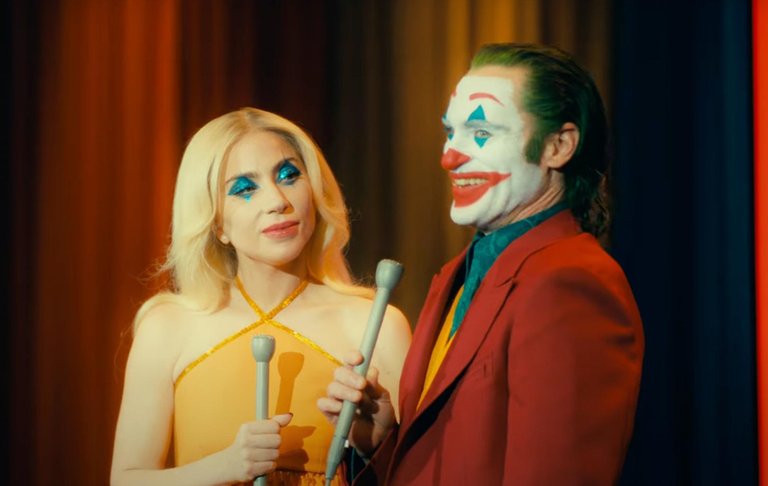
While this is happening, Arthur meets Lee (Lady Gaga), a woman who is also hospitalized and who makes him feel that she admires him, respects him and, later, that she loves him. She tells him how seeing Joker changed her life and made her feel less alone, which in turn makes Arthur himself feel less alone, accompanied and understood by someone like him (consider the film's title) and this allows the introduction of Harlee Quinzel (and love) in a plot and a film that had many failures that critics have been responsible for disseminating, but also some successes that not everyone seems to comment on or highlight.
Mientras eso sucede, Arthur conoce a Lee (Lady Gaga), una mujer que también está internada y que le hace sentir que lo admira, lo respeta y, luego, que lo ama. Ella le cuenta cómo haber visto a Joker le cambió la vida y le hizo sentirse menos sola, lo que a su vez hace que el propio Arthur se sienta menos solo, acompañado y comprendido por alguien como él (considerar el título de la película) y eso permite la introducción de Harlee Quinzel (y del amor) en una trama y una película que tuvo muchos fallos que la crítica se ha encargado de difundir, pero también algunos aciertos que no todos parecen comentar o destacar.
Let's start with the positive points. Anyone who praised Phoenix's performance in Joker has to repeat the praise in this sequel. The actor once again embodies the character in an extraordinary way, as if he had made both films at the same time. The physical commitment, that strange laugh, the range of emotions, the contrast between his passivity and those violent attacks, between humiliation and arrogance, all of that is present again in Joker: Folie à Deux. If we are consistent, Phoenix's talent cannot be omitted. Nor can we fail to say that Lady Gaga is superb in her performance, to such a level that, at times, the spark of the story falls on her. I would have liked to see more of her character and know what it was that drove her from one side of her madness to the other, that they would have gone deeper into her origins, but in terms of what the script asked her to do, Gaga did it all wonderfully well, so it's a shame that they didn't know how to take advantage of the talent of a leading couple who even sings and dances in the film, which brings me to the next positive point, which is the music. The soundtrack of Joker: Folie à Deux is also very good, both in the selection of the songs to cover and in the original compositions that maintain the gloomy tone of Gotham City and the first film, the decision was accurate. So where was the failure? Well, in many places, but the main one was in the script.
Vayamos por partes y empecemos por los puntos positivos. Cualquiera que haya elogiado la actuación de Phoenix en Joker tiene que repetir los elogios en esta secuela. El actor encarna una vez más al personaje de una manera extraordinaria, como si hubiera grabado ambas películas al mismo tiempo. El compromiso físico, esa risa tan extraña, el abanico de emociones, el contraste entre su pasividad y esos ataques violentos, entre la humillación y la arrogancia, todo eso está presente nuevamente en Joker: Folie à Deux. Si somos coherentes, no se puede omitir el talento de Phoenix. Como tampoco se puede dejar de decir que Lady Gaga está soberbia en su actuación, a un nivel tal que, por momentos, la chispa de la historia recae sobre ella. Me hubiera gustado ver más de su personaje y saber qué fue eso que la llevó de un lado al otro de su locura, que hubieran profundizado más en sus orígenes, pero en cuanto a lo que el guión le pedía que hiciera, Gaga lo hizo todo maravillosamente bien, por lo que es una pena que no se haya sabido aprovechar el talento de una pareja protagonista que incluso canta y baila en la cinta, lo que me lleva al siguiente punto positivo que es la música. El soundtrack de Joker: Folie à Deux es muy bueno también, tanto en la selección de los temas para versionar como en las composiciones originales que mantienen el tono lúgubre de Ciudad Gótica y de la primera película, la decisión estuvo acertada. Entonces, ¿en dónde estuvo la falla? Bueno, en muchos lugares, pero el principal fue en el guión.
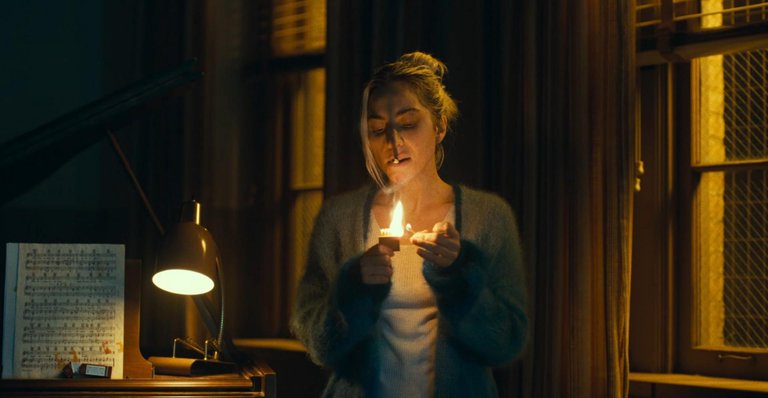
There's nothing that can save a bad script. A mediocre script results in a mediocre movie that with a certain amount of special effects and explosions can please a mediocre audience, but bad writing condemns any idea. And in this case it's a sequel that, in my opinion, was not necessary, and that had to try to copy the success of the first, not in form but in substance. Instead of writing a film that seems like a second episode of the same story (only more boring), they should have focused on writing a good script, a good plot, without having to quadruple the budget to finance absurdities. Screenplay, cinematography and acting. Those were the keys to Joker, but in this case there's a lot of the last, less of the latter and nothing (or almost nothing) of the first.
No hay nada que pueda salvar un mal guión. Un guión mediocre resulta en una película mediocre que con cierta cuota de efectos especiales y explosiones puede gustar a un público también mediocre, pero la mala escritura condena cualquier idea. Y en este caso se trata de una secuela que, en mi opinión, no hacía falta, y que tenía que tratar de copiar el éxito de la primera, no en la forma sino en el fondo. En lugar de escribir una película que parece un segundo episodio de la misma historia (sólo que más aburrida) tenían que haberse centrado en escribir un buen guión, una buena trama, sin necesidad de cuadruplicar el presupuesto para financiar despropósitos. Guión, cinematografía y actuación. Esas fueron las claves de Joker, pero en este caso hay mucho de lo último, menos de lo segundo y nada (o casi nada) de lo primero.
I have nothing against musicals. I love them, in fact. So the possibility of Joker: Folie à Deux being a musical didn't scare me, although I recognize that it was a risky proposition. In principle it makes sense because of Arhur's relationship with music and dance, as seen in the first film, and I also found it interesting to place these musical numbers inside Arthur's mind. The singing and dancing scenes are, for the most part, fantasies of a disturbed mind that mixes the songs he loves, the woman who has just excited him, the setting of a television show he used to watch with his mother and the desire for living (or have lived) those moments that life, the system and society denied him. I'm fine with that. But were there a need for so many songs and so many dance and singing sequences? Two or three I think would have been enough to emphasize the fantasy side of Arthur's mind, but there are about a dozen such scenes that, because they mostly occur in Arthur's mind, do not contribute anything to the action, to the plot, but rather emphasize the poverty of the script because, in my opinion, some of the best scenes of the film happen precisely within these fantasies (such as the sequence of Phoenix in a suit performing the theme "The Joker"); That is to say, of the little good that happens in Joker: Folie à Deux, most of it doesn't even really happen.
No tengo nada en contra de los musicales. Los amo, de hecho. Así que la posibilidad de que Joker: Folie à Deux fuese un musical no me asustaba, aunque reconozco que era una propuesta arriesgada. En principio tiene sentido por la relación de Arhur con la música y el baile, como ya se vio en la primera película, y también me pareció interesante ubicar estos números musicales dentro de la mente de Arthur. Las escenas de canto y baile son, en su gran mayoría, fantasías de una mente trastornada que mezcla las canciones que ama, la mujer que acaba de ilusionarlo, el escenario de un show de televisión que solía ver con su madre y los deseos de poder vivir (o haber vivido) esos momentos que la vida, el sistema y la sociedad le negaron. Estoy bien con eso. Pero, ¿hacían falta tantas canciones y tantas secuencias de baile y canto? Con dos o tres creo que hubiera bastado para enfatizar el lado fantasioso de la mente de Arthur, pero hay cerca de una docena de escenas así que, por ocurrir en su mayoría en la mente de Arthur, no aportan nada a la acción, a la trama, sino más bien enfatizan la pobreza del guión porque, en mi opinión, algunas de las mejores escenas de la película suceden precisamente dentro de estas fantasías (como la secuencia de Phoenix trajeado interpretando el tema "The Joker" ); es decir, de lo poco bueno que ocurre en Joker: Folie à Deux la mayoría ni siquiera ocurre realmente.
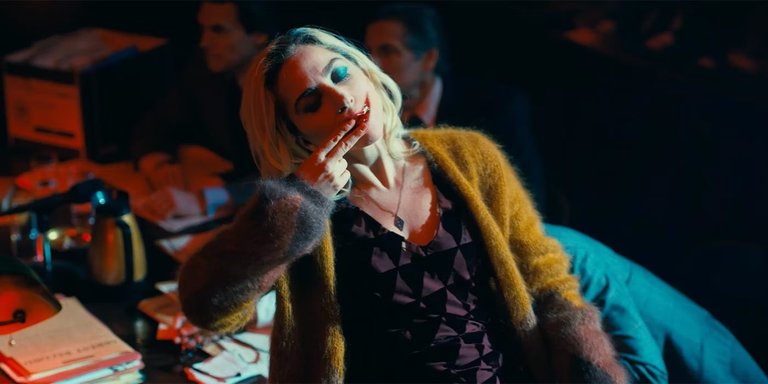
But above these things, beyond the excess of musical pieces, the lack of a solid script, the waste of a very high budget (what did they spend so much money on?), the wasting of acting talent or not having managed to replicate the magnetic cinematography of the first film (beyond a few sequences that they deceptively included in the trailer) what Todd Phillips cannot be forgiven for is having killed the character. And I'm not referring to the scene where Arthur is killed, but to having betrayed and killed the concept, the character and the image that Phillips himself helped elevate in Joker.
Pero por encima de estas cosas, más allá del exceso de piezas musicales, la falta de un guión sólido, el despilfarro de un altísimo presupuesto (¿en qué se gastaron tanto dinero?), el desperdiciar el talento actoral o no haber conseguido replicar la magnética cinematografía de la primera película (más allá de unas pocas secuencias que engañosamente incluyeron en el trailer) lo que no se le puede perdonar a Todd Phillips es haber matado al personaje. Y no me refiero a la escena en donde Arthur es asesinado, sino a haber traicionado y matado el concepto, el carácter y la imagen que el propio Phillips ayudó a elevar en Joker.
It didn't make sense to include Harvey Dent in the trial (if you're going to base it on the comic, then do it right, but if it's a free adaptation and your own, a separate character, then don't make those irrelevant connections) but it makes even less sense that one of the most famous villains in the history of fiction, are foolishly convicted and murdered in prison after just a few crimes committed in a few weeks. Todd Phillips: Why set off a car bomb in front of the courthouse and rescue Fleck if he was going to be captured shortly after? Why the musical number of The Joker, violent and arrogant, and that incredible scene, emotional and significant, of Gary Puddles on the stand, if then the film would return to the initial tedium? How do you make Arthur Fleck himself deny the Joker and say that it's not him? No wonder Harlee abandons him, but then why did you put her in the movie? Why did you make a sequel if you were going to crucify the character you elevated as a redeemer in the first installment? What they did in this movie with the character of Joker reminded me of what they did with Jon Snow in Game of Thrones. Jon was promised glory - by the scriptwriters -, they married him to a queen, they even resurrected him, all to make him end up in ignominy in the North, beyond where he came from. That's what they did with Joker: they finished him off, even before killing him, and I think that was the worst failure of Joker: Folie à Deux, what do you think? I read you in the comments.
No tuvo sentido incluir a Harvey Dent en el juicio (si vas a basarte en el cómic, entonces házlo bien, pero si es una adaptación libre y propia, un personaje aparte, entonces no ocupes esas conexiones irrelevantes) pero menos sentido tiene que uno de los villanos más célebres de la historia de la ficción, sea condenado y asesinado tontamente en la cárcel tras apenas unos pocos crímenes cometidos en pocas semanas. Todd Phillips: ¿para qué explotar un coche bomba frente al juzgado y rescatar a Fleck si lo iban a capturar poco después? ¿para qué el número musical de The Joker, violento y arrogante, y esa increíble escena, emotiva y significativa, de Gary Puddles en el estrado, si luego la película volvería al tedio inicial? ¿cómo haces que el propio Arthur Fleck reniegue de Joker y diga que no es él? Con razón Harlee lo abandona, pero entonces ¿para qué la metiste en la película? ¿para qué hiciste una secuela si ibas a crucificar al personaje que elevaste como redentor en la primera entrega? Lo que hicieron en esta película con el personaje de Joker me recordó a lo que hicieron con Jon Snow en Game of Thrones. A Jon - los guionistas - le prometieron la gloria, lo casaron con una reina, lo resucitaron incluso, todo para hacerlo terminar en la ignominia del Norte, más allá de donde salió. Eso hicieron con Joker: acabaron con él, incluso antes de matarlo, y esa creo que fue la peor falla de Joker: Folie à Deux, ¿ustedes qué opinan? Los leo en los comentarios.
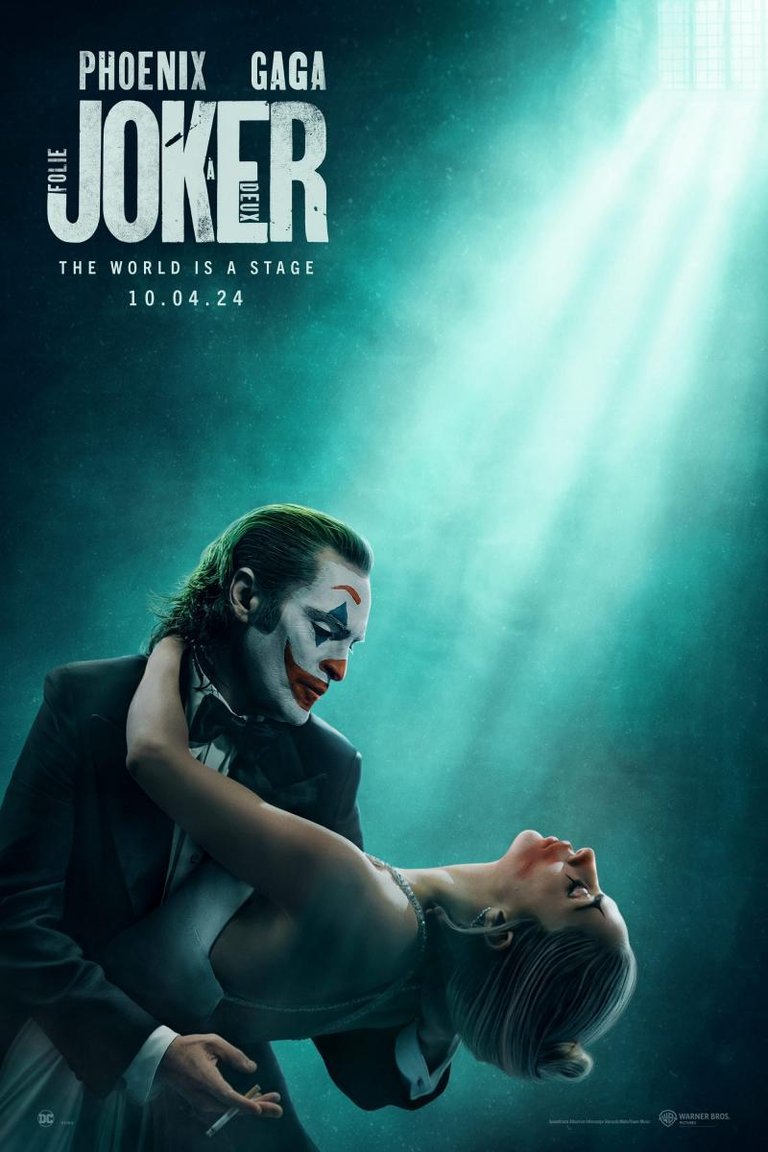
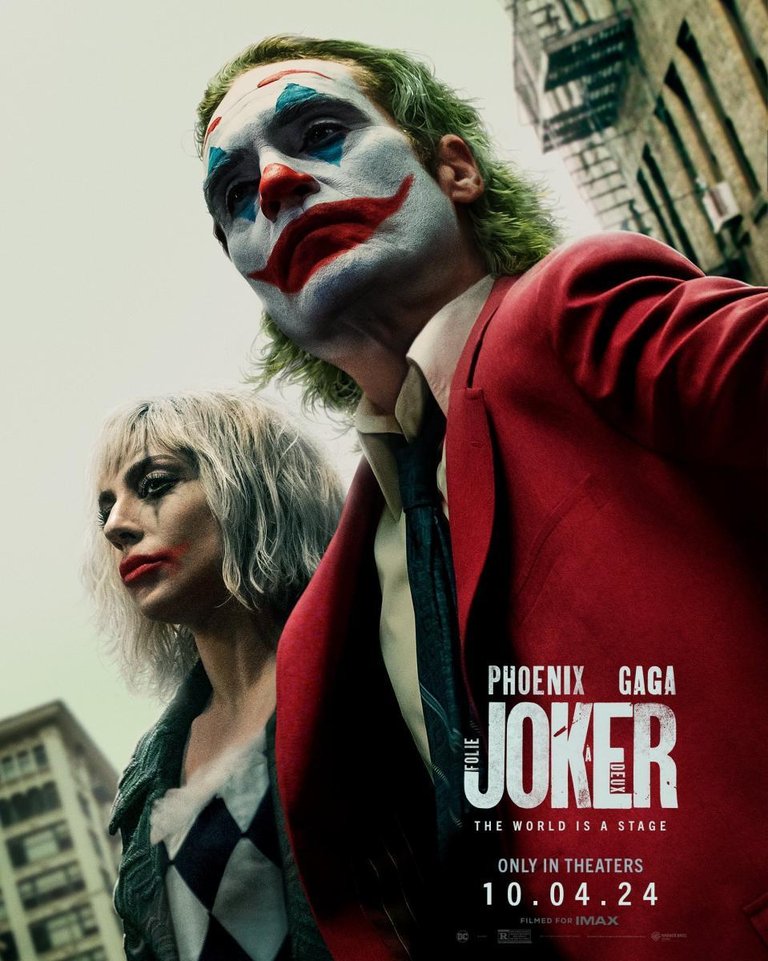
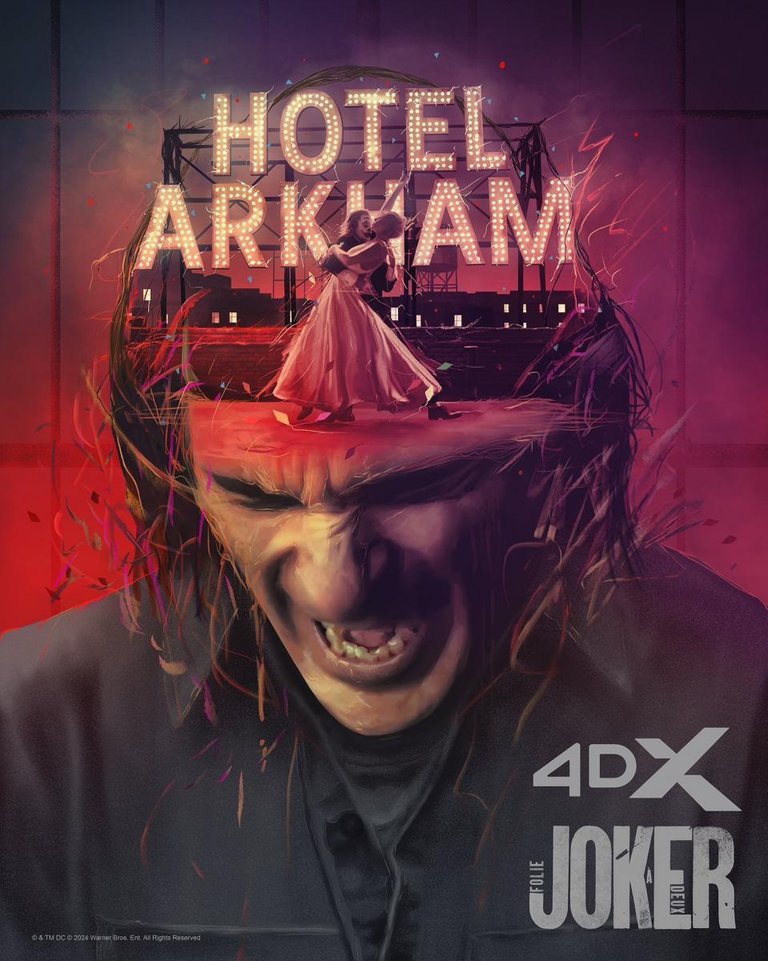
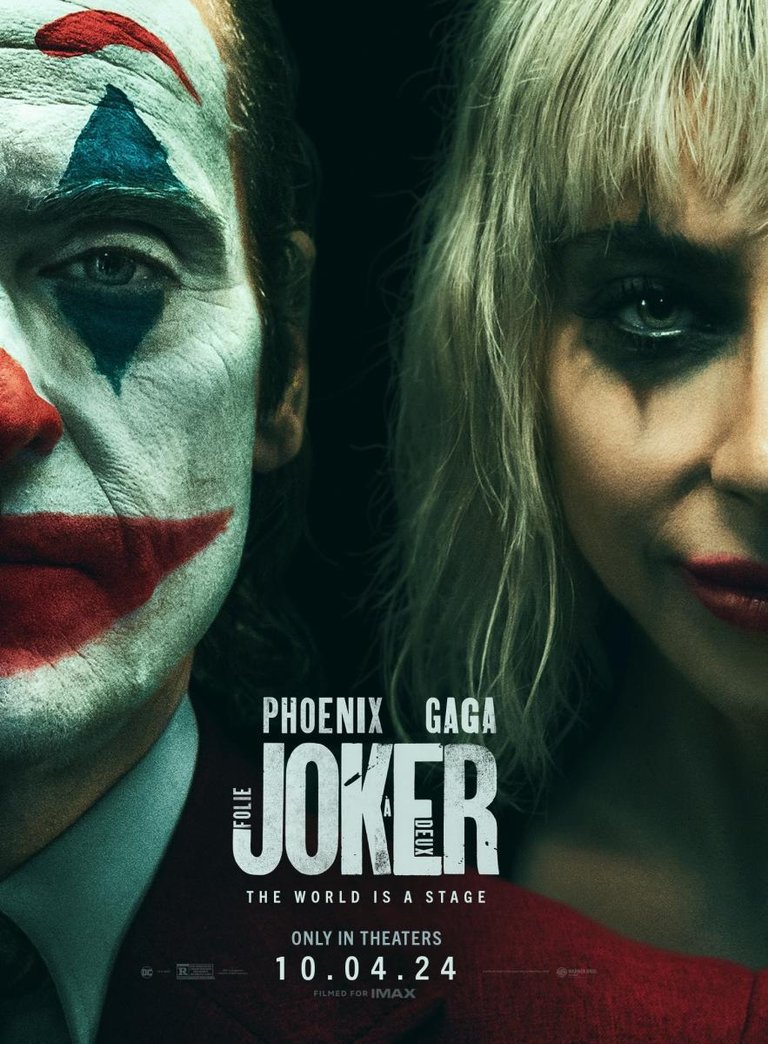
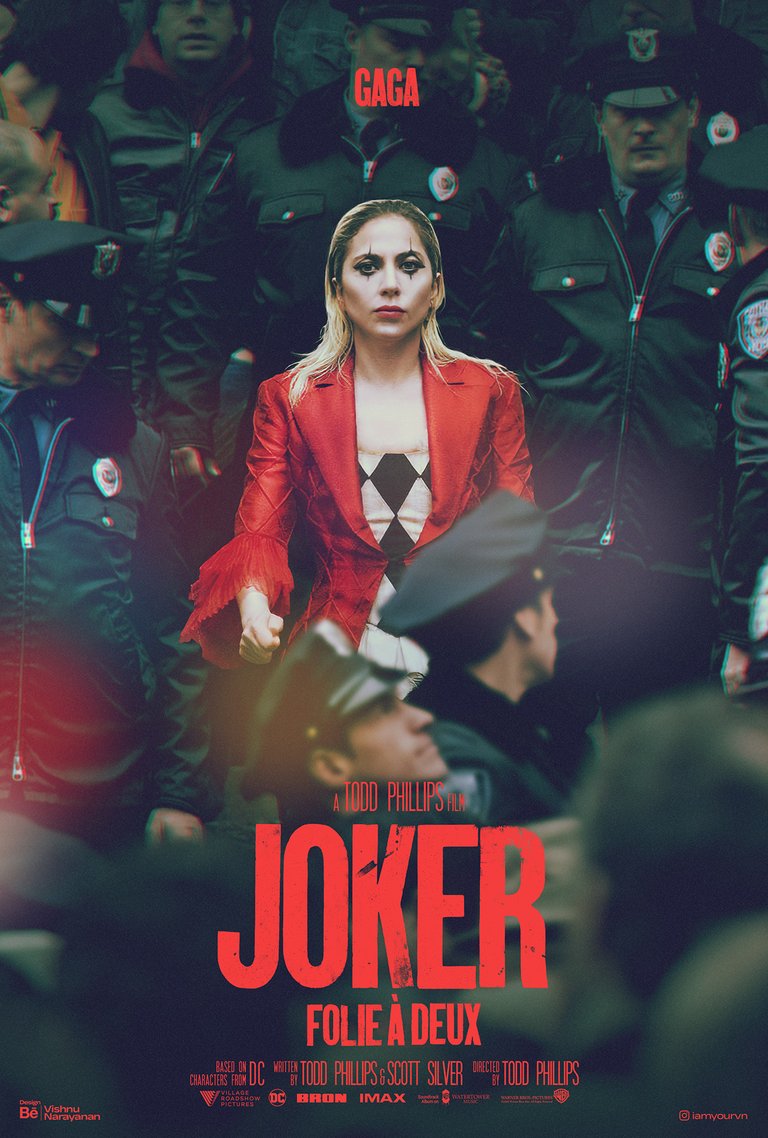
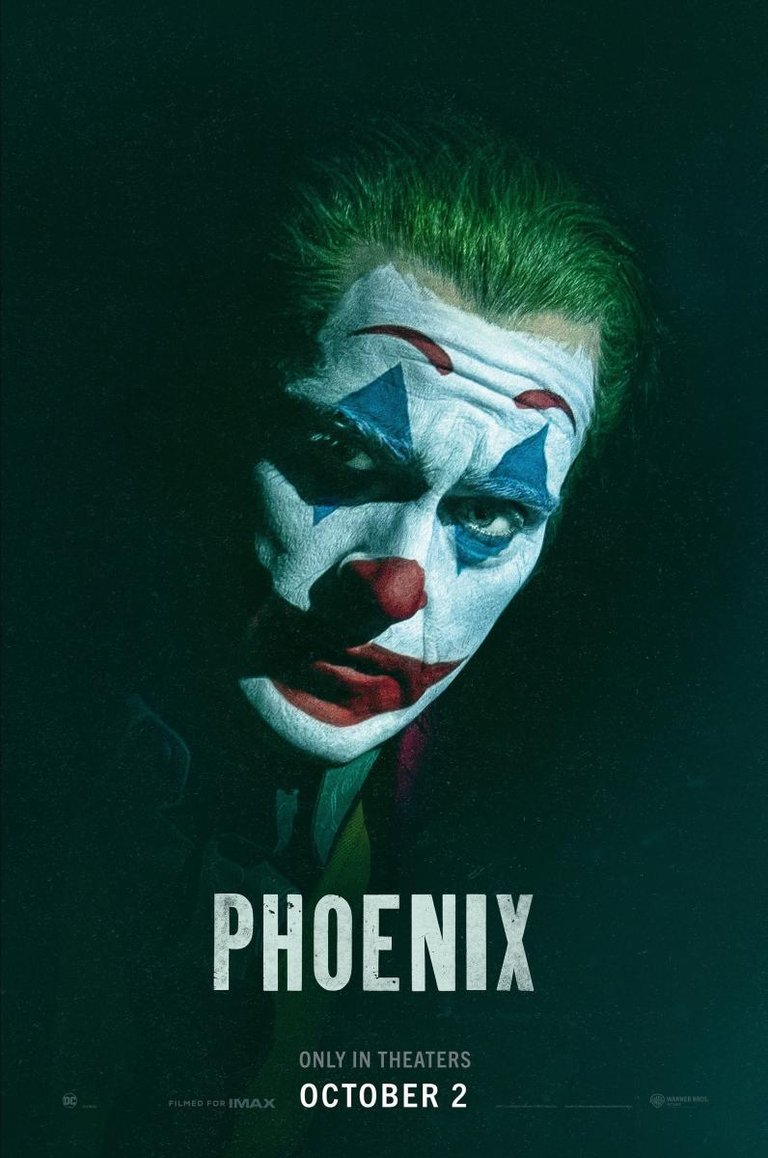

Tenía muchas ganas de ver esta secuela, pero el sinfín de spoilers en las redes me bajó el encanto. Primero por tratarse de un musical y segundo por el pobre guion. Aunque para ser sincera, tu critica me regresa un poco de las ganas para verla, quizás desde otro punto de vista, aunque teniendo en cuenta todo lo negativo.
La idea es esa, que cada quien se haga su propia idea y que más allá de las opiniones de los demás podamos ver los distintos enfoques y configurar uno propio. Saludos y gracias por leerme.
Hola, yo me he confundido con las personas que han reseñado sobre esta película (sin ofender obviamente). No sé si les gustó o no les gustó. Es posible que sea quien se ha enfocado en bloquear criticas negativas sobre el film porque a mi me encantó jajaja. Creo que hay un tema interesante que no tiene desperdicio. Entiendo que hay expertos que miran desde otra óptica y detallan los fallos, se respeta sus opiniones. Yo volvería a verla sin duda. Saludos y gracias 🙂
Es lo bonito de este tipo de instancias, que todos podemos tener opiniones y puntos de vista diferente sobre algo y compartirlo. Gracias por leerme y comentar. Saludos.